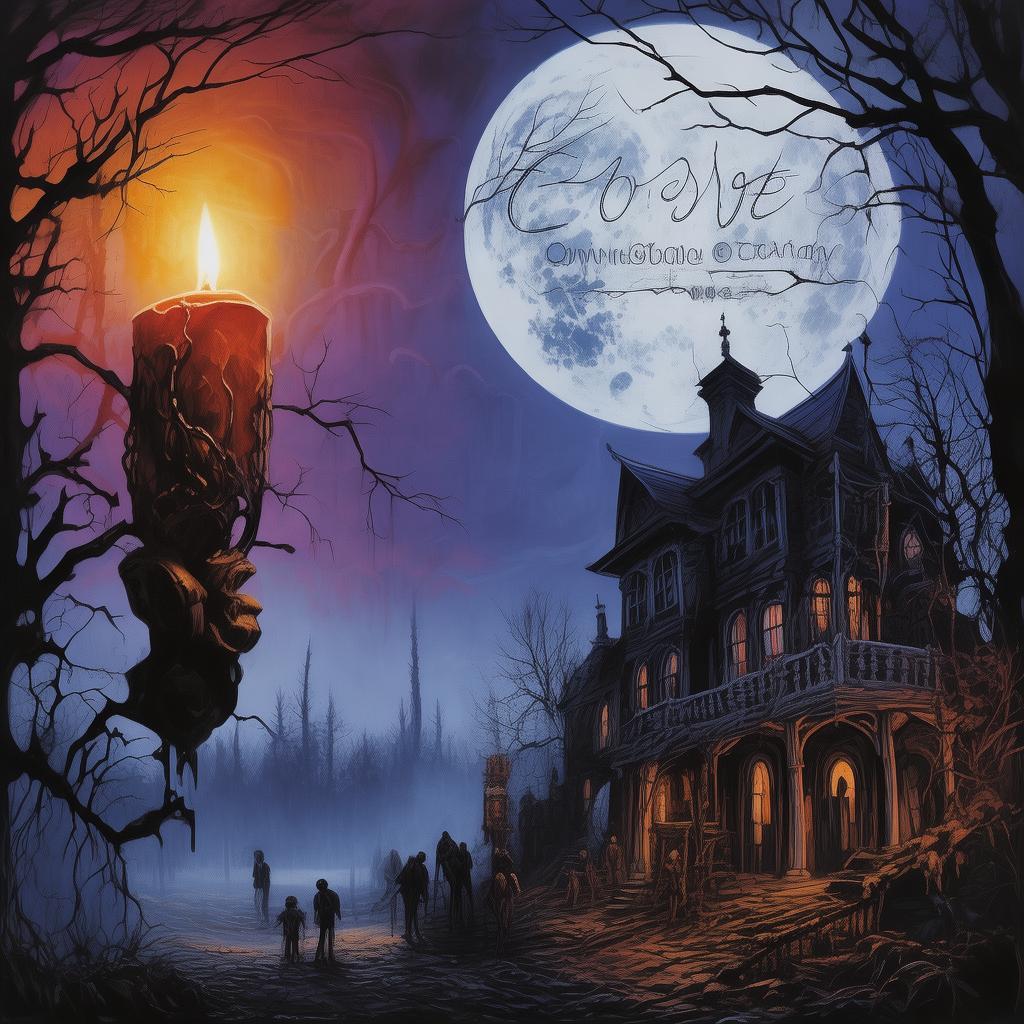The Vanishing Verse: A Haunting Lament of the Mountain's Phantom
In the heart of the ancient, enigmatic mountains, there was a tale whispered by the winds that danced through the pine forests. It spoke of a poet whose soul was as bound to the earth as the roots of the ancient trees. His name was Liang, and he was said to have vanished without a trace, leaving behind a haunting lament that echoed through the valleys and hollows of the mountain.
The year was 1927, a time when the world was on the cusp of great change, and the mountains were alive with the whispers of a forgotten past. Liang, a man of few words and profound insight, had chosen the mountain as his sanctuary. He sought the silence and solitude that would allow his heart to resonate with the very essence of nature.
As the years passed, Liang's legend grew. Some spoke of him as a hermit, others as a mystic, but all agreed that his spirit was as much a part of the mountain as the stones and the streams. Then, one fateful night, he vanished. No trace of him was found, no belongings left behind, just a haunting melody that seemed to beckon those who dared to listen.
In the 21st century, a young researcher named Mei was drawn to the legend. She had always been fascinated by the unknown, by the shadows that danced just beyond the reach of the light. Mei had read of Liang, of his vanished verse, and she felt an inexplicable pull towards the mountain's phantom.

With a backpack and a tape recorder, Mei set out on her quest. She followed the narrow paths that snaked their way up the mountain, her breath catching in her throat as she marveled at the grandeur of nature that surrounded her. The air grew colder as she ascended, the silence deeper, and the legend more tangible.
As Mei reached the highest peak, she could feel the weight of the mountain's history pressing down on her. She paused, taking in the breathtaking view, and then she began to record. It was then that she heard it, the haunting melody, faint at first, but growing louder with each passing moment.
Mei's heart raced as she listened to the lyrics that seemed to come from within her own soul. The words spoke of loss, of longing, and of a love that transcended time. It was as if Liang himself was reaching out to her, beckoning her to uncover the truth behind his disappearance.
Driven by curiosity and a sense of duty, Mei delved deeper into the mountain's secrets. She discovered that Liang had been working on a poem that he believed would reveal the soul of the mountain itself. The poem was never completed, and it was said that Liang had vanished on the night he intended to share it with the world.
Mei's search led her to an old, abandoned cabin nestled among the trees. Inside, she found a collection of notebooks filled with Liang's scribbled notes and sketches. Among them was the incomplete poem, its words incomplete, its meaning elusive.
As Mei read the poem, she realized that it was not just a work of art, but a map to Liang's heart. Each word, each line, seemed to lead her closer to the truth. The poem spoke of a love so deep that it could not be contained by the flesh, a love that had transcended death itself.
It was then that Mei heard a voice, clear and haunting, echoing through the cabin. "You have found the way," it said. "Now, you must follow it."
Mei spun around, her heart pounding in her chest, but there was no one there. She returned to the poem, and as she read on, she understood. Liang's love had not been for a person, but for the mountain itself. He had found a connection so profound that it had become his life, his soul.
Mei's journey took her to the very heart of the mountain, where she found a hidden chamber carved into the rock. Inside, she saw the final verse of Liang's poem, etched into the stone wall. The words were beautiful, poignant, and complete.
With the final verse, Mei felt a profound sense of peace. She knew that she had not just discovered the truth behind Liang's disappearance, but had also found her own purpose. The mountain's phantom had not been a curse, but a gift, a reminder that love and connection could transcend the boundaries of life and death.
As Mei made her way back down the mountain, the haunting melody played once more, but this time, it was accompanied by a sense of warmth and solace. She had found the lost poet, not in flesh and blood, but in the very essence of the mountain itself.
The legend of the Mountain's Phantom and the vanished poet Liang would continue to be told, a tale of love, loss, and the enduring connection between humanity and the natural world. And Mei, the young researcher who had embarked on a quest to uncover the truth, would carry the memory of Liang's haunting lament in her heart, forever bound to the mystical mountain that had once been his sanctuary.
✨ Original Statement ✨
All articles published on this website (including but not limited to text, images, videos, and other content) are original or authorized for reposting and are protected by relevant laws. Without the explicit written permission of this website, no individual or organization may copy, modify, repost, or use the content for commercial purposes.
If you need to quote or cooperate, please contact this site for authorization. We reserve the right to pursue legal responsibility for any unauthorized use.
Hereby declared.









